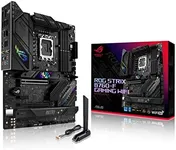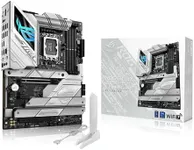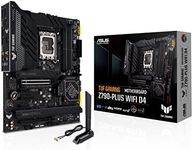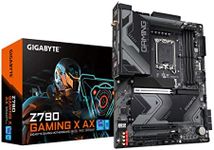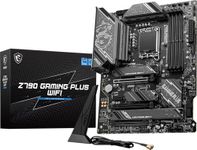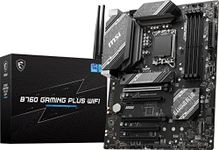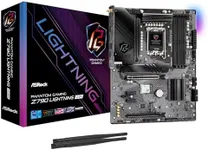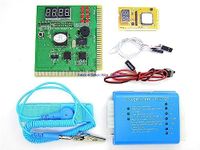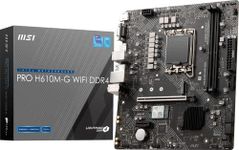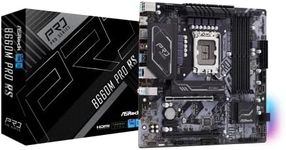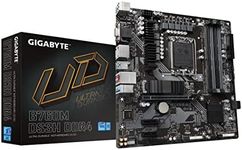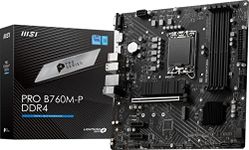Buying Guide for the Best Gaming Motherboard For Intel I5
Choosing the right gaming motherboard for your Intel i5 processor is crucial for building a high-performance gaming PC. The motherboard is the backbone of your computer, connecting all the components and ensuring they work together seamlessly. When selecting a motherboard, you need to consider several key specifications to ensure compatibility, performance, and future-proofing. Here are the key specs you should focus on and how to navigate them to find the best fit for your needs.ChipsetThe chipset is a crucial component of the motherboard that determines its capabilities and compatibility with your Intel i5 processor. It manages data flow between the processor, memory, and peripherals. For gaming, you should look for chipsets that support overclocking and have advanced features. Common chipsets for Intel i5 processors include B-series, H-series, and Z-series. The Z-series is the most feature-rich and supports overclocking, making it ideal for gamers who want to push their system to the limit. The B-series and H-series are more budget-friendly but may lack some advanced features. Choose a chipset based on your gaming needs and whether you plan to overclock your CPU.
Form FactorThe form factor of a motherboard determines its size and the type of case it will fit into. The most common form factors are ATX, Micro-ATX, and Mini-ITX. ATX motherboards are the largest and offer the most expansion slots and features, making them ideal for high-end gaming builds. Micro-ATX boards are smaller but still provide a good balance of features and expansion options. Mini-ITX boards are the smallest and are suitable for compact builds, but they may have fewer features and expansion slots. Choose a form factor based on the size of your case and your need for expansion slots and features.
RAM CompatibilityRAM compatibility is essential for ensuring your system runs smoothly. Motherboards support different types and speeds of RAM, so you need to check the specifications to ensure compatibility with your desired memory modules. Look for motherboards that support DDR4 RAM, as it is the current standard for gaming. Additionally, consider the maximum RAM capacity and the number of RAM slots available. For gaming, 16GB of RAM is generally sufficient, but having the option to upgrade to 32GB or more can be beneficial for future-proofing. Ensure the motherboard supports the RAM speed you intend to use, as higher speeds can improve gaming performance.
Expansion Slots and PortsExpansion slots and ports are important for connecting additional components and peripherals to your motherboard. Key slots to consider include PCIe slots for graphics cards and M.2 slots for high-speed SSDs. Ensure the motherboard has enough PCIe slots to support your graphics card and any other expansion cards you may need, such as sound cards or network cards. Additionally, check for USB ports, including USB 3.0 and USB-C, for connecting peripherals like keyboards, mice, and external storage. The number and type of expansion slots and ports you need will depend on your gaming setup and any additional components you plan to use.
VRM QualityThe Voltage Regulator Module (VRM) is responsible for delivering stable power to the CPU. High-quality VRMs are essential for maintaining system stability, especially when overclocking. Look for motherboards with robust VRM designs, which typically include more power phases and better cooling solutions. This is particularly important for gaming, as a stable power supply can improve performance and prevent crashes during intense gaming sessions. If you plan to overclock your Intel i5 processor, investing in a motherboard with a high-quality VRM is crucial.
BIOS and Software FeaturesThe BIOS (Basic Input/Output System) and accompanying software features can greatly enhance your user experience. A user-friendly BIOS with intuitive navigation and overclocking options can make it easier to tweak your system for optimal performance. Some motherboards also come with software suites that offer additional features like system monitoring, fan control, and RGB lighting customization. Consider the BIOS and software features when choosing a motherboard, especially if you plan to overclock or customize your gaming setup. A good BIOS and software suite can simplify system management and enhance your overall gaming experience.
